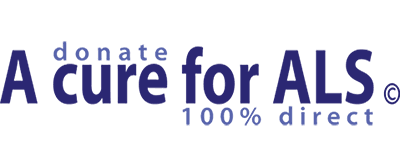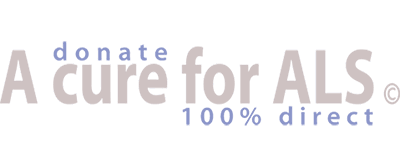Column July/August 2013
For a while I wanted to have it about some scientific facts about ALS related to research of this disease. I didn’t knew these remarkable findings, and had to admit my eyebrows frowned when I heard or read them.
The first observation I made when I was surfing around via via and ended up on a link to an article from the American ALS website.
The subject for this column was an article about the U.S. Veterans and ALS.
This aroused the more my interest because there's still something mysterious and mystery hanging around the military, the army, and especially around the U.S. Military.
Where we used to be, fascinated during the Cold War by tall tales of espionage and counter-espionage between the Russians and the Americans, is our interest now more focused on all kinds of information and facts that may not see daylight,the secret agendas of superpowers - mostly from the U.S. itself then - and in many new technologies they tested in war zones. That speaks now once more to our imagination in this era of strong scientific progress which we place our hope more than ever in science.
Also within the ALS-interest groups we see the growing hope for a solution, for help, a cure from a scientific corner. And this hope is actually true because this is the era, and in the future still more of the big changes in the biological and medical applications of new discoveries and technologies.
The article in question mentions the fact that the disease ALS is officially recognized as 'occupational' for war veterans of the U.S. military, so for soldiers fought in Iraq and Afghanistan. This means that those soldiers with ALS receive an additional pension and extra money and care from the U.S. government. This in itself can be a normal human attitude against people who get such a disease. This means in fact that, by making this information public in this way, the U.S. Military implicitly admits that there could exist a certain relation between the operations in a war zone and the disease ALS. The disease ALS is statistically twice as common with war veterans and other people. That in itself is remarkable enough, but if the army itself once again confirms, makes me think that there is more going on, that behind the scenes they know more than they show about statistical association and the conditions of soldiers in a war zone. Things they'd rather keep quiet, and that they would prefer out of day light. And yes, that kind of thing we want to know of course, our modern espionage stories, we like to speculate about conspiracies and suspect that there is more to certain situations than some would like us to believe.
Whether there is really more behind it is of course the question, and who am I to know with certainty or to judge about it. We often say that there is no smoke without fire, and often this wisdom is also correct.
That there is expertise about the conditions in war zones that would play a factor into the increased risk to get ALS, is therefore to be expected. The more scientific explanation establishes a connection with the use of pesticides and heavy metals. Let me be giving an explanation.
Pesticides are actually toxic chemicals that are used to kill insects, fungi, and others. Pesticides have different effects, but some work on the nervous system, where the cause of a disease as ALS should be situated. They are commonly used in agriculture, but we find them also in household products, like in all products insects such as flies, mosquitoes and other pests fight. Perhaps herein lies also an explanation for factors which we know little in war zone because we’ve never been there ourselves. In countries like Iraq or Afghanistan, the troops are protected from insects as mosquitoes by using mosquito sprays to treat their body.
Given the bivouac that this kind of war zone entails, I can truly imagine that - like any good scout knows - at camp many mosquito bites, nettle and an occasional wasp or bee sting, not to mention a bit of a 'horsefly ", as souvenirs along to come back home, and in the army in Iraq will still be worse than that. So I imagine that those men abundantly smear that stuff on their bodies to chase the insects away. What kind of stuff these soldiers just use there I do not know, but the army wouldn’t be the army if it wasn’t a quite powerful and strong insecticide, and probably that stuff isn’t something just for sale to the normal citizen, the tough character of soldiers knowing.
I suspect that, when you accumulates for several months the nature of the insecticide and the direct exposure of the soldiers, you can come to a significant risk factor which could cause the development of ALS. This is also what one appoints as one of many possible causes of ALS, but outside of the military context there’re still more statistical relationships between the risk of ALS and pesticides.
I also would like to mention some data on certain contact sports.
It appears that the American Football League have one to five times statistically increased risk to get ALS in comparison with other people, and that risk is apparently equally high among football players from the Italian Serie A. These are more extreme high numbers than we found on soldiers, probably because this kind of sport is on the edge of what a human body can collect.
Whether the soldiers there might still have been exposed to other chemical dangerous substances is of course still the question, just as you can ask for top sportsmen whether they have used drugs or other specialty products demand.
Certain war operations are conducted with all sorts of chemicals you will find less elsewhere, like for example kerosene, ammunition and gasoline, usually needed in huge amounts to keep the equipment rolling. The fact that there are always all kinds of materials, buildings and others that explode and ignite results a lot of toxins coming into the air where you shouldn’t normally be able to find, and the soldiers are largely exposed to in fact. Healthy is something else!
When we think of Agent Orange, the poison that was used by the Americans in the Vietnam War, I can truly imagine that this is a huge risk factor for health, and I dare to say that in the following wars also other volatile substances were used, pesticides or other toxic substances, and this for some strange reasons that can be understood only in the context of warfare and also only be permitted there.
A second major risk factor for health quoted is the fact that soldiers sent to rugged war zone have to get series of vaccinations to protect themselves against just about any existing illness that can be encountered, or even against diseases that can be used by the enemy, I suspect. In every vaccine, so I’m told, is a fraction of a metal to get the vaccine to 'inoculate' themselves. For one vaccine or even for just a few vaccines means that cumulatively not so much, but those soldiers might get unhealthy numerous vaccinations in quick succession, so that the accumulation and toxicity of metals in the body is much larger than the body can handle, and as a risk factor for the development of disease will form.
I must say that it sounds plausible, the whole explanation of the occurrence of ALS among soldiers by two different causes, if you believe that there is at least a major link between the pesticides and metals and ALS. Other studies also show that factors such as air pollution and toxic substances play a role in the pathogenesis of ALS, but it’s certainly not the only factors that will play a role.
The fact that there isn’t always direct connections to be found, makes the disease therefore so complex.
Nevertheless, the coverage of the U.S. Military that they recognize the illness as an important disease of war shouldn’t be underestimated, I think so. First, the U.S. Military isn’t just anyone, and is about many things such as chemistry, biology and nuclear technology up to date with the latest technology, and even often the client to create and develop new technologies in the field.
The determination and the recognition of the relationship of the above information is very important for me and the proof of its correctness.
Or the statement that goes all the way is full and correct, that is of course another question.
Because of so-called strategic interests, the army is perfectly capable to hold, manipulate or to devise information to avoid open cards on the table.
Reflecting on chemical and biological warfare, both principal forbidden, is sure to see an analogy with pesticides and other toxic substances and their relation to eliciting a disease, they could be for example the source of the emergence of the disease like ALS.
How that would fit together is something else, and that's where I can’t express myself because only specialists can study such a thing. But if I intuitively feel that there’s more in this whole story than you should think at first sight, then I hope that other people with more knowledge of business can use this for further deepen. Sometimes solutions aren’t so far away, but right under our nose but
Now the end of Summer approach, a very good Summer here with us, I must say furthermore, however what the weather concerns, I can’t get rid of the image of a golden red sunset over a vast calm sea. A sort of point where time continues to falter for a moment and may dwell in me. And somehow it does that too. For a while now, and for some even longer, too. But would not die out over the heads of all the people on the beach so long to the cry of the gulls hurtling today again on the way home in their car or on the train. And I know how it is once we are dead. Then it’s exactly so, but then longer and longer and as long as the time stops to exist on infinity and eternity lost in a sigh of a second. And nothing matters more, everything remains revealed in itself. I look at my feet and feel the ground, the earth from which everything arises, and to which all will return. It's beautiful.
It’s beautiful like the end of Summer, beautiful like the beginning of something new. I hope my 41th summer didn’t exceed the total of Summers that I will ever know. Because I’m fond of the Summer, of the sun itself, not so much the heat but its light. It does something with someone like me, large amounts of light make me a better person, at least I think so. And the high red, steamy and fiery from the end of the Summer late in August is a sort point of nostalgia, of loss, of magnificence, I would like to experience many times again. Please, so help me God!
Tristan Herftijd
Sugar Mountain, August 2013


